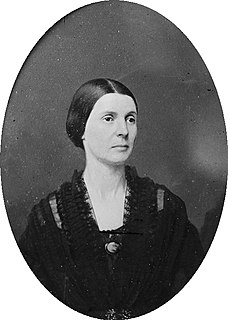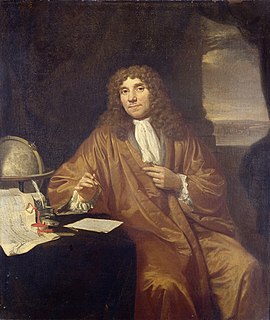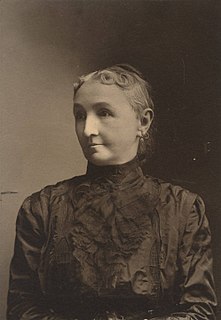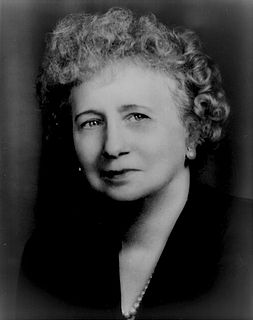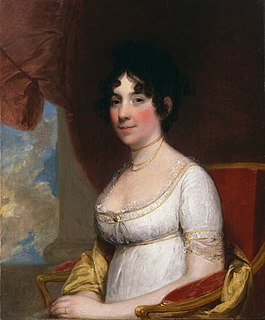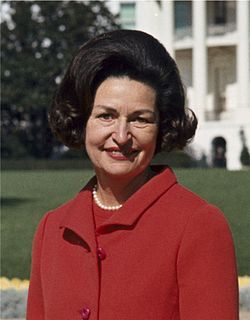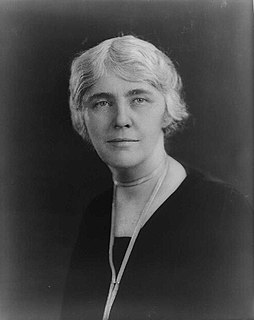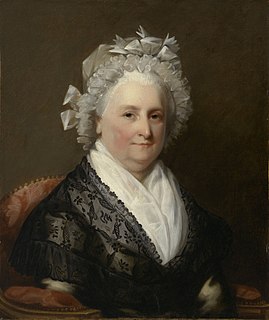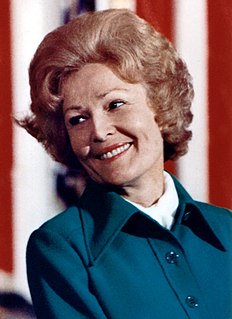A Quote by Eleanor Roosevelt
I received a most amusing postcard the other morning. Unfortunately, it was not signed in a readable manner so I cannot answer it privately. But it comes from Moblie, Ala., and says: 'Dear Mrs. Roosevelt: You have not answered my question, the amount of Negro blood you have in your veins, if any.' I am afraid none of us know how much nor what kind of blood we have in our veins, since chemically it is all the same. And most of us cannot trace our ancestry more than a few generations.
Related Quotes
Nothing sweeter than to drag oneself along behind events; and nothing more reasonable. But without a strong dose of madness, no initiative, no enterprise, no gesture. Reason: the rust of our vitality. It is the madman in us who forces us to adventure; once he abandons us, we are lost; everything depends on him, even our vegetative life; it is he who invites us, who obliges us to breathe, and it is also he who forces our blood to venture through our veins. Once he withdraws, we are alone indeed! We cannot be normal and alive at the same time.
I really don't know why it is that all of us are so committed to the sea, except I think it is because in addition to the fact that the sea changes and the light changes, and ships change, it is because we all came from the sea. And it is an interesting biological fact that all of us have, in our veins the exact same percentage of salt in our blood that exists in the ocean, and, therefore, we have salt in our blood, in our sweat, in our tears. We are tied to the ocean. And when we go back to the sea, whether it is to sail or to watch it we are going back from whence we came.
If we now plainly perceive that the passage of the blood from the arteries into the veins of the tadpole is not performed in any other than those vessels, which are so minute as only to admit the passage of a single globule at a time, we may conclude that the same is performed in like manner in our own bodies and in those of other animals.
Come to us and quackle and quank. Relieve us of our stirrings With your fangs so sharp and bright Take this blood that's always purring. Through our hollow bones it flows To each feather and downy fluff. Quell the terrible, horrid urge that so often prinkles us, Still our dreams, make slow our thoughts Let tranquillity flood our veins. Come to us and drink your fill So we might end our pains. - The Owls at St. Aegolius calling to the bats
How we shall earn our bread is a grave question; yet it is a sweet and inviting question. Let us not shirk it, as is usually done.It is the most important and practical question which is put to man. Let us not answer it hastily. Let us not be content to get our bread in some gross, careless, and hasty manner. Some men go a-hunting, some a-fishing, some a-gaming, some to war; but none have so pleasant a time as they who in earnest seek to earn their bread.
I think Scandinavian Paganism, to us here, is more interesting than any other. It is, for one thing, the latest; it continued in these regions of Europe till the eleventh century; 800 years ago the Norwegians were still worshipers of Odin. It is interesting also as the creed of our fathers; the men whose blood still runs in our veins, whom doubtless we still resemble in so many ways.
We cannot conceive how the Foetus is form'd in the Womb, nor as much as how a Plant springs from the Earth we tread on ... And if we are ignorant of the most obvious things about us, and the most considerable within our selves, 'tis then no wonder that we know not the constitution and powers of the creatures, to whom we are such strangers.
And if I remain in the dark about our purpose here, and the meaning of eternity, I have nevertheless arrived at an understanding of a few more modest truths: Most of us fear death. Most of us yearn to comprehend how we got here, and why-- which is to say, most of us ache to know the love of our creator. And we will no doubt feel that ache, most of us, for as long as we happen to be alive.
Whence came I, whither go I? Science cannot tell us a word about why music delights us, of why and how an old song can move us to tears. Science is reticent too when it is a question of the great Unity – the One of Parmenides – of which we all somehow form part, to which we belong. The most popular name for it in our time is God – with a capital ‘G’. Whence come I and whither go I? That is the great unfathomable question, the same for every one of us. Science has no answer to it.
But who can foresee such things? None of us can predict the final outcomes of our actions, and few of us even try; most of us just do what we do to prolong a moment's pleasure or to stop the pain. And even when we act for the noblest reasons, the last link of the chain all too often drips with someone's blood.


